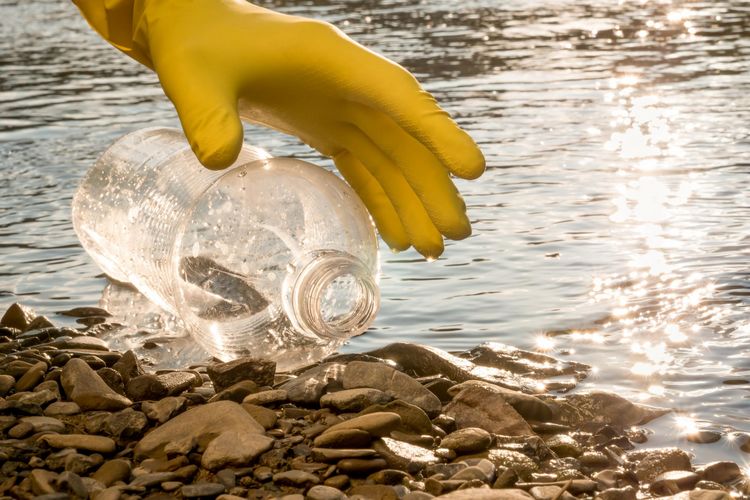Greenhouse gas emissions, plastic pollution, and protein scarcity are existential threats and pose tremendous challenges to Europe and the world. But how can science turn these threats into opportunities?
As part of the M-ERA.Net-funded REPLACER project, researchers from Leipzig University – together with the Leibniz Institute of Surface Engineering (IOM) in Leipzig, the University of Latvia in Riga, and the Romanian tech company Holisun – are developing a new generation of hybrid living materials (HLMs). These HLMs are designed to capture greenhouse gas emissions, mitigate plastic pollution, and offer a sustainable source of alternative protein. The REPLACER team develops HLMs by cultivating microbial biofilm consortia within porous plastic structures, particularly recycled PET. Using the synergistic effects of the biofilm-forming photoautotrophic and methanotrophic strains, the goal is to efficiently generate high biomass for sustainable protein substitutes in food and animal feed.
Does this mean that carbon dioxide and methane, which are already too much, can be added to this process to produce proteins?
Yes. By incorporating mixed-species biofilms into porous materials, we can sequester greenhouse gases like carbon dioxide and methane – such as those produced in biogas plants – and convert them into valuable microbial proteins to close the loop of a circular economy. This HLM-based process offers a sustainable alternative to fossil-based feedstocks, addressing both environmental concerns and the growing demand for protein. Currently, we have developed laboratory-scale HLM-based photobioreactors (technology readiness level 3), capable of producing several grams of biomass daily.
What’s next for this technology?
The next milestone is to scale up to a kilogram of biomass per day (TRL 4–5). With support from Leipzig University’s Technology Transfer Office and the local entrepreneurship initiative SMILE, the team is exploring future applications and commercialisation strategies. While launching a start-up in this early stage would be ambitious, it is a potential next step on the horizon. This interdisciplinary project demonstrates how scientific innovation can drive meaningful change, transforming today’s environmental challenges into solutions for a sustainable future.
- About b-ACTmatter
b-ACTmatter was founded in 2021 at Leipzig University and established with support from the federal STARK programme and the Free State of Saxony. The Research and Transfer Center for Bioactive Matter develops environmentally friendly materials and technologies based on biological resources. REPLACER is part of “M-ERA.NET Call 2022”, a network funded by the European Union. Established in 2012, this network aims to promote research and innovation in materials science and technology through coordinated support from national and regional funding bodies — including the Free State of Saxony. Together with partners such as Centre for Biotechnology and Biomedicine (BBZ) at Leipzig University, b-ACTmatter is planning to establish a Venture Lab to help bring innovations purposefully into the economy.































































